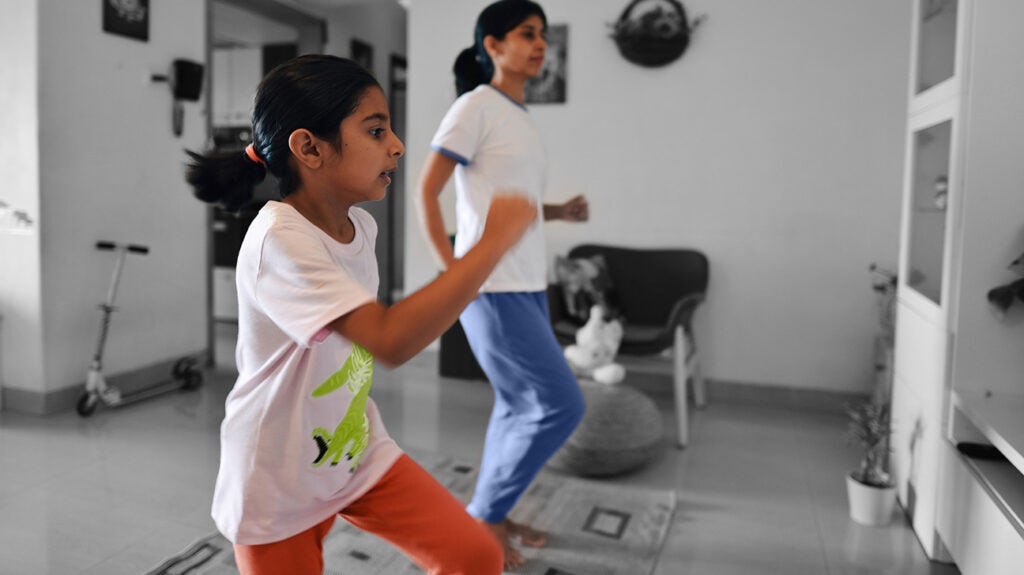Mindfulness as a Complementary ADHD Strategy
Though not a cure, mindfulness complements ADHD care by improving self-management. By fostering self-awareness and promoting coping strategies, mindfulness techniques can significantly improve the quality of life for those affected by ADHD. Evolving research underscores mindfulness as a key part of comprehensive ADHD management.
The Role of Meditation in ADHD Management
Mindfulness is increasingly recognized as a powerful tool for managing ADHD challenges. Focusing on the present through mindfulness enhances ADHD-related emotional control. Mindfulness techniques like deep breathing reduce ADHD impulsivity and promote relaxation. Short mindfulness sessions integrated into routines enhance ADHD users' focus and emotional balance.
In conclusion, while ADHD presents unique challenges regarding focus and attention, there is hope in the form of emerging strategies that go beyond traditional medication. A combination of behavioral therapies, technological tools, physical activity, mindfulness practices, and dietary adjustments offers a comprehensive approach to improving focus for those affected by ADHD. As awareness of these methods continues to grow, individuals with ADHD can look forward to a future marked by enhanced concentration and productivity.
In conclusion, while ADHD presents unique challenges, various coping strategies can empower individuals to lead fulfilling lives. By establishing structured routines, utilizing visual aids, practicing mindfulness, creating conducive environments, seeking social support, and fostering self-compassion, individuals with ADHD can navigate daily tasks more effectively. With the right tools and mindset, success is within reach for those living with ADHD.
Finally, a holistic approach that includes dietary considerations has emerged as a key area of interest. Some studies suggest that certain dietary changes, such as reducing sugar intake and incorporating omega-3 fatty acids, may positively influence ADHD symptoms. While more research is needed in this area, nutritionists advocate for balanced diets rich in whole foods to support cognitive health.
Another important strategy is the use of visual aids. Charts, checklists, and color-coded systems can serve as powerful tools to enhance focus and organization. For example, maintaining a visible checklist for daily tasks can provide a clear outline of what needs to be accomplished, making it easier to stay on track. Similarly, using different colors for various subjects or responsibilities can help individuals quickly identify priorities and deadlines.
In conclusion, while ADHD presents challenges, implementing effective coping strategies can empower individuals to thrive. Coping strategies like routines, mindfulness, and professional help allow ADHD users to excel in daily life. As awareness of ADHD continues to grow, so too does the understanding that with the right tools and support, individuals can lead fulfilling, productive lives.
Research Supporting Mindfulness for ADHD
Researchers have begun to explore the effectiveness of mindfulness interventions specifically tailored for individuals with ADHD. The Journal of Attention Disorders reveals mindfulness improves ADHD focus and emotional regulation. Mindfulness integration offers enhanced outcomes in ADHD management plans.
In conclusion, the landscape of ADHD treatment is evolving, with new strategies providing hope for individuals seeking to improve their focus and overall quality of life. Healthcare advancements suggest a hopeful future for individuals living with ADHD. A multi-dimensional strategy empowers ADHD individuals to excel in life and work.
In conclusion, mindfulness techniques offer a valuable tool for
ADHD-friendly apps individuals grappling with the challenges of ADHD. By promoting awareness, focus, and emotional balance, mindfulness practices not only enhance daily functioning but also empower individuals to lead more fulfilling lives. As research continues to unveil the benefits of mindfulness, it is clear that these techniques can serve as a beacon of hope for those navigating the complexities of ADHD.
Breaking Tasks into Manageable Steps
Another valuable strategy is breaking tasks into smaller, manageable steps. Large projects can be overwhelming for those with ADHD, leading to procrastination or frustration. By dividing tasks into smaller, more achievable goals, individuals can maintain focus and feel a sense of accomplishment as they complete each step. Task chunking helps prevent stress while
integrating breaks to maintain attention.
In recent years, the prevalence of Attention Deficit Hyperactivity Disorder (ADHD) has gained significant attention, affecting approximately 5% of the global population, with many individuals, both children and adults, seeking effective strategies to manage their symptoms. While traditional treatments such as medication and behavioral therapy remain common, mindfulness techniques are emerging as a promising alternative. These practices not only help improve focus and reduce impulsivity but also foster a sense of calm and emotional regulation.
